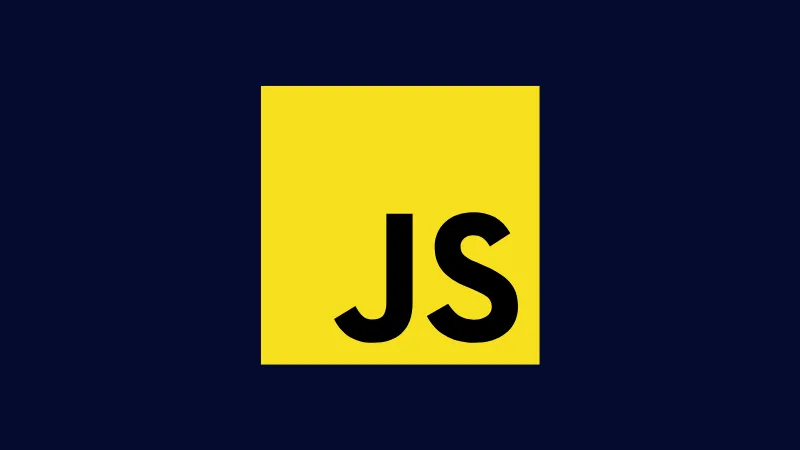Programming with JavaScript
Create dynamic web experiences and develop cutting-edge applications using JavaScript.

Our tutors graduated from top universities








Overview
Description
This course empowers you with the skills to think and operate like a developer, mastering problem-solving, researching solutions, and designing code workflows with JavaScript. Witness JavaScript in action daily, from Amazon’s search box to embedded news videos and your Twitter feed.
Career opportunities with JavaScript encompass front-end web development, web application development, and website administration, offering diverse paths in the tech industry.
By honing your JavaScript proficiency, you’ll be well-prepared to tackle the demands of modern web development and create interactive, user-friendly online experiences. Whether you aspire to become a front-end developer crafting engaging user interfaces or a web application developer building complex, feature-rich platforms, JavaScript is an essential tool for realizing your ambitions in the digital world.
What you will learn
- Foundational concepts such as variables, conditionals, operators, boolean logic, functions, arrays, objects, loops, and strings
- How to interact with the Document Object Model (DOM) to dynamically update web page content, facilitating interactive user experiences
- The latest JavaScript features introduced in ECMAScript 6, including arrow functions, classes, template literals, and destructuring
- Error handling techniques to effectively troubleshoot and debug JavaScript code, ensuring robust and reliable applications
Customised curriculum
Learn typical patterns found in each of the AP Art History sections, so you know what to expect.
Test taking strategies
Get diagnosed about your weaknesses and strengths, and learn how to optimize your performance.
Private lesson
No need to accommodate other students. Learning is customised your perfect pace and difficulty so you are always improving.
Requirements
- Ages 10-18
- If learning JavaScript for web design, basic understanding of HTML and CSS
About JavaScript
JavaScript holds a global leadership position in crafting dynamic web experiences and boasts the distinction of being the most widely utilized programming language, found in client-side code on a staggering 97% of all websites.
However, JavaScript’s versatility transcends its role in client-side web development, extending to server-side programming, mobile app creation, and even game development. The introduction of Node.js has reimagined JavaScript for server-side logic, elevating it to a full-stack development language. Frameworks such as Angular, React, and Vue have revolutionized web application construction, providing more structured and efficient programming paradigms.
Embracing JavaScript unlocks a plethora of opportunities for aspiring developers due to its widespread use and robust community support. The language continually evolves with the creation of libraries and frameworks that enhance its capabilities and simplify complex tasks. Its asynchronous programming features, exemplified by AJAX and Promises, empower the development of fast, real-time applications like chat engines, online gaming platforms, and collaborative editing environments.
Beyond web development, JavaScript’s relevance extends into the realm of the Internet of Things (IoT), where its event-driven architecture proves invaluable for processing sensor data and real-time analytics. Furthermore, the integration of machine learning libraries like TensorFlow.js facilitates the infusion of AI capabilities directly into JavaScript applications, broadening its potential even further.
One of JavaScript’s remarkable strengths lies in its community-driven ethos. A multitude of open-source packages and utilities are readily accessible through package managers like npm (Node Package Manager), fostering collaboration and innovation. This ecosystem accelerates development cycles and encourages creative exploration, as developers worldwide contribute to an ever-expanding repository of shared knowledge and tools.
JavaScript’s lightweight and interpreted nature makes it an ideal choice for startups and projects with accelerated development timelines. Its robust cross-browser and cross-device compatibility are pivotal in an era where users access websites and apps across a diverse range of platforms.
Whether you aspire to be an entrepreneurial trailblazer constructing the next groundbreaking platform or a student embarking on a career in the tech industry, the realm of JavaScript offers boundless potential for professional advancement and technological innovation.
Student FAQs About Coding with JavaScript
JavaScript is a dynamic, high-level language characterized by its event-driven and object-oriented nature. It accommodates both imperative and declarative programming styles, encompassing core concepts such as variables, data types, control structures, functions, objects, and arrays.
Indeed, JavaScript is renowned for its beginner-friendly attributes due to its relatively simple syntax compared to other programming languages. It offers immediate feedback through web browsers, allowing learners to witness real-time results of their code execution.
For front-end development, you can explore popular choices like Angular, React, and Vue.js. In the realm of server-side or back-end development, Node.js is frequently employed. Additionally, libraries such as jQuery, D3.js, and TensorFlow.js offer specialized functionalities worth delving into.
ECMAScript serves as a standard for scripting languages, while JavaScript serves as a specific implementation of that standard. ECMAScript establishes the foundational principles and syntax rules, while JavaScript extends it by introducing additional features, libraries, and APIs.
The advent of Node.js has expanded JavaScript’s utility to encompass both client-side (front-end) and server-side (back-end) development, rendering it a comprehensive full-stack language. This empowers developers to construct entire applications using JavaScript exclusively.
Novice developers can commence their journey with straightforward projects such as to-do lists, basic calculators, or simple web pages. As proficiency grows, more intricate endeavors like chat applications, data visualizations, or rudimentary games become attainable.
The timeline for acquiring proficiency in JavaScript varies based on prior programming experience and the amount of time invested in learning. Generally, consistent practice and engagement in real-world projects can lead to a substantial level of proficiency within 6 to 12 months.
How it works
1
Request a tutor
Let us know your goals and age range. We'll figure out a plan to help get you there.
2
Match with a tutor
You'll get a tutor based on your needs and goals, or you can request a specific tutor.
3
Start a free trial
Experience a free trial lesson with your new tutor and see if your learning style matches.
4
Keep it up!
If everything went well, sign up to keep going! You can choose the pacing of the lessons
1Request a tutor
Let us know your goals and age range. We'll figure out a plan to help get you there.
2Match with a tutor
You'll get a tutor based on your needs and goals, or you can request a specific tutor.
3Start a free trial
Experience a free trial lesson with your new tutor and see if your learning style matches.
4Keep it up!
If everything went well, sign up to keep going! You can choose the pacing of the lessons
Need more info?
Let's talk.
Leave your phone number, and we’ll call you back to discuss how we can help you.


